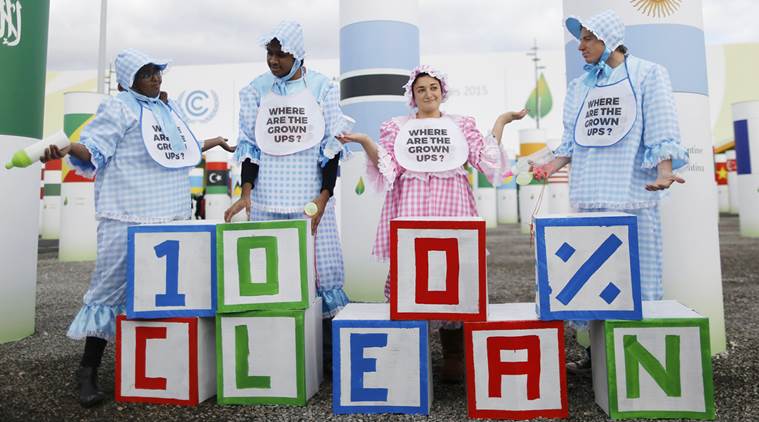The world is watching the climate summit in Paris. Of course, not all Indians will be watching: Some of them are too young to know the threats they face from climate change. Over 8,00,000 babies will be born in India during the two weeks of international climate negotiations. Most of them will live long enough to experience climate change. But they will never have an opportunity at the polls to reward or punish today’s leaders for their success or failures in averting a climate disaster.

Yet, even these 8,00,000 are not the most disenfranchised or powerless Indians who will suffer the consequences of climate change. There will be about three million Indians who will someday be grandchildren of these 8,00,000 babies. Climate scientists tell us that it is in approximately the lifetime of these grandchildren that much of the pain of climate change will begin to register. Most of these grandchildren will live into the 22nd century, but they will be profoundly impacted by what today’s political leaders do. Scientifically plausible disaster scenarios are terrible: Much of South Asia could experience literally lethal temperature increases in which humans cannot survive outdoors for more than a few hours; Mumbai could be underwater; and society may not be able adjust to these changes peacefully.
Although the worst consequences of climate change will occur in the future, the very carbon emissions that will hurt future Indians are already taking a large toll on the health of Indians now being born. Delhi is widely recognised as the most polluted city on earth. A large fraction of the most polluted cities are right here in India, which is rapidly expanding its consumption of and pollution from coal, which fills the air with harmful smoke.
Burning coal is a uniquely dangerous contributor both to climate change in the future and to disease today. In ongoing joint research with Aashish Gupta, a demographer at the University of Pennsylvania, we find that Indian districts where new coal plants were opened between 2005 and 2012 saw a relative decrease in reported respiratory health. This makes sense because burning coal releases large amounts of pollutants into the air that can make everybody sick. Statistically, India can expect over 40,000 of the children born during the Paris talks to die before the 2019 election. Many of them will die of pneumonia and other respiratory infections. Reducing coal consumption would be a good place to start to avert climate change and prevent many of these deaths.
To be sure, today’s average Indian did not start the problem of carbon emissions. Most of the historical blame should fall on powerful people who have long known about climate change but have not opposed it: Mainly political and business leaders in richer countries. But India’s carbon footprint is changing quickly. If current trends continue, India’s annual carbon emissions will exceed those of the US in just a few years — quite possibly by 2024. Perhaps the only people truly blameless are the three million grandchildren not to be born for decades to come.
Most importantly, now is a time when action is more important than blame. India is like a pedestrian threatened by richer countries’ dangerous driving: By all means, the pedestrian should blame the irresponsible driver whose negligence almost kills her. But step out of the way of disaster first, rather than be flattened while vocalising objection.
It will not be easy to compel self-interested politicians in the US to take action on climate change. Yet, feasible strategies are available. Serious leadership from India and other countries may be able to form a coalition that incentivises the US to do something meaningful, perhaps by using trade penalties, as suggested by economist William Nordhaus. In all 40 scenarios that Nordhaus computed, India would be made economically better off by the formation of an international “climate club” that uses trade policy to enforce emissions reductions — precisely because the expected costs of climate change will be so large for India.
It is reasonable to suspect that future generations would not ask today’s leaders whether India was originally to blame for the disasters that they may be forced to endure. They may ask, instead, what today’s leaders did to stop the disaster.
[“source-indianexpress”]




